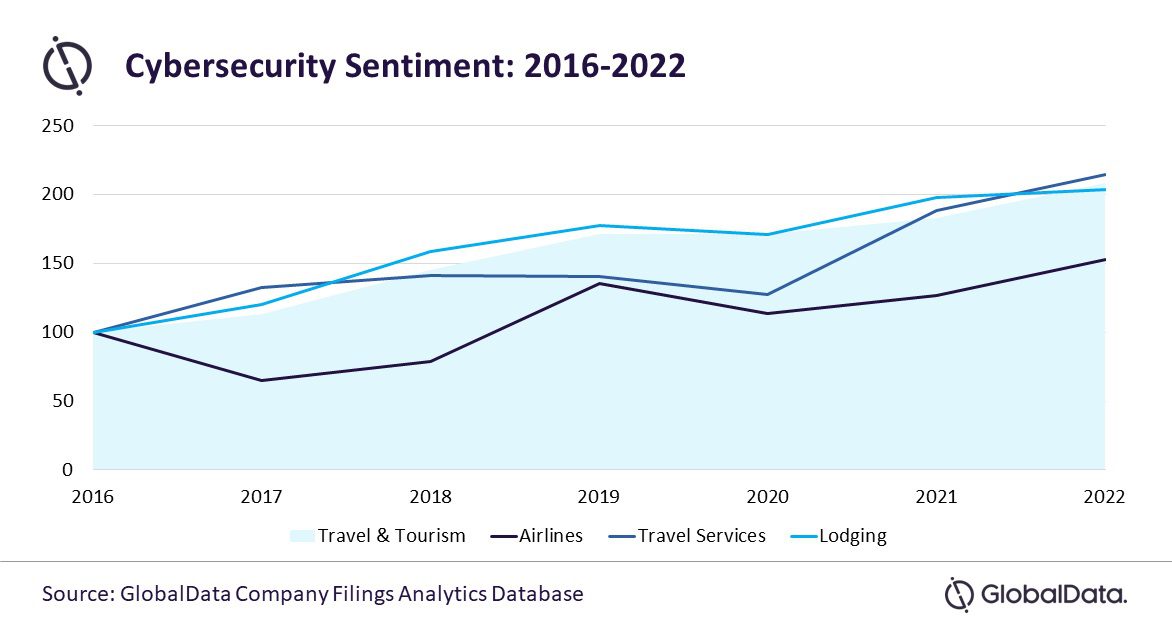 The travel and tourism industry has been increasingly targeted by cybercriminals, resulting in a surge of ransomware attacks stemming from data breaches. GlobalData, a leading data and analytics company, has warned that these attacks pose a significant cybersecurity threat to the sector.
The travel and tourism industry has been increasingly targeted by cybercriminals, resulting in a surge of ransomware attacks stemming from data breaches. GlobalData, a leading data and analytics company, has warned that these attacks pose a significant cybersecurity threat to the sector.
According to GlobalData’s Company Filings Analytics Database, cybersecurity concerns within the industry increased by 4% year-on-year in 2022. This sentiment increase reflects the growing threat ransomware attacks pose to travel and tourism companies.
Airlines, travel services, and lodging are the sectors most at risk, with sentiment for these industries increasing by 6%, 4%, and 1%, respectively, in 2022 compared to the previous year.
Misa Singh, Business Fundamentals Analyst at GlobalData, emphasized the importance of information and network security projects to set up reliable technical protection and security management mechanisms to prevent data leakage and ensure customer security. Singh warned that a severe data security incident could lead to operational disturbances and significant financial damage to the business.
Several travel and tourism companies have taken steps to improve their cybersecurity measures. For example, LATAM Airlines Group SA has implemented self-boarding using biometric technology to enhance the customer experience. The company is also starting Pre-Flight check the documentation, allowing customers to send their documents digitally before boarding.
China Eastern Airlines Corp Ltd is considering establishing a sound information and security-related management mechanism, while Booking Holdings Inc is addressing SQL injection, where a third party tries to insert malicious code into a company’s software through data entry fields on websites to gain control of the system using the websites as a platform.
Tourism Holdings Ltd has updated its digital strategy and invested in new technology and cybersecurity solutions. H World Group Ltd and Mahindra Holidays & Resorts India Limited have set up an information security committee responsible for developing policies and procedures, offering data protection-related advice, protecting the security of customer data, and avoiding data leakage.
Singh concluded that failing to adopt appropriate technology leaves companies vulnerable to cyber threats, which can harm their operations. Investing in robust cybersecurity solutions, educating employees about cybersecurity risks, and staying up-to-date on cybersecurity threats can help reduce the likelihood of an attack.
In conclusion, the travel and tourism industry must take cybersecurity seriously to protect themselves and their customers from the ever-increasing threat of ransomware attacks. Companies that invest in cybersecurity measures and keep up-to-date with the latest threats will be better prepared to fend off cybercriminals and safeguard their operations.
Written by: Stephen Morton
















